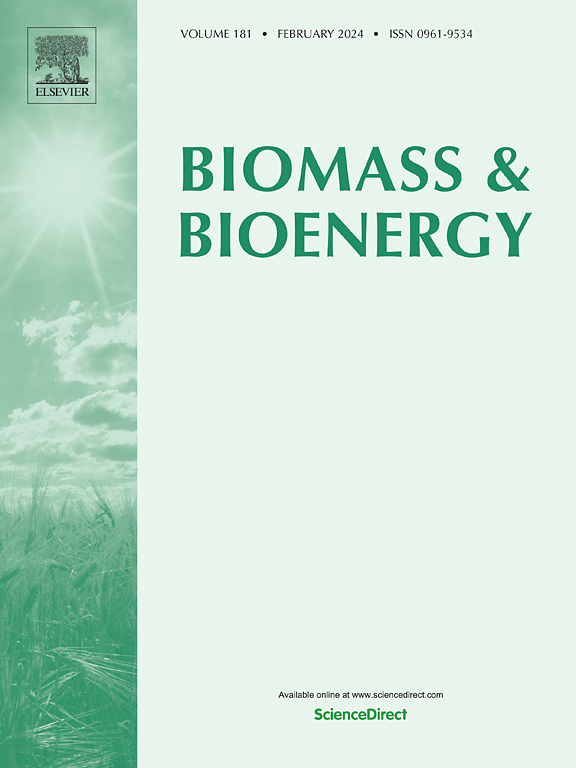An overview of xylose valorization through its conversion into high-value chemicals by yeast
IF 5.8
2区 生物学
Q1 AGRICULTURAL ENGINEERING
引用次数: 0
Abstract
The valorization of lignocellulosic biomass (LCB) holds critical importance within the circular economy framework. Xylose, a five-carbon monosaccharide and the second most abundant sugar in LCB, represents a versatile building block for industrial applications. However, its use in fermentation processes is less efficient compared to hexoses like glucose, primarily due to the yeast Saccharomyces cerevisiae inability to metabolize this pentose. As a result, current industrial processes for xylose often rely on chemical catalysis methods, such as reduction and hydrogenation, which can have significant environmental impacts. Transitioning to sustainable processes requires both effective xylose recovery from LCB and enhanced fermentation efficiency. This review highlights LCB deconstruction techniques that yield high xylose concentrations and explores the potential of various yeast species to produce biofuels and value-added biomolecules from this pentose. This review summarizes recent advancements and highlights the potential for developing highly efficient xylose bioprocessing methodologies for sustainable biomass utilization.
通过酵母将木糖转化为高价值化学品实现木糖价值化综述
在循环经济框架内,木质纤维素生物质(LCB)的价值提升至关重要。木糖是一种五碳单糖,也是木质纤维素生物质中含量第二高的糖类,是工业应用的一种多功能构件。然而,与葡萄糖等己糖相比,木糖在发酵过程中的使用效率较低,这主要是由于酿酒酵母无法代谢这种戊糖。因此,目前木糖的工业加工通常依赖于化学催化方法,如还原和氢化,这会对环境产生重大影响。要过渡到可持续工艺,既需要从低浓木糖中有效回收木糖,又需要提高发酵效率。本综述重点介绍了能产生高浓度木糖的低浓木糖解构技术,并探讨了各种酵母从这种戊糖中生产生物燃料和增值生物大分子的潜力。本综述总结了最新进展,并强调了开发高效木糖生物加工方法以实现可持续生物质利用的潜力。
本文章由计算机程序翻译,如有差异,请以英文原文为准。
求助全文
约1分钟内获得全文
求助全文
来源期刊

Biomass & Bioenergy
工程技术-能源与燃料
CiteScore
11.50
自引率
3.30%
发文量
258
审稿时长
60 days
期刊介绍:
Biomass & Bioenergy is an international journal publishing original research papers and short communications, review articles and case studies on biological resources, chemical and biological processes, and biomass products for new renewable sources of energy and materials.
The scope of the journal extends to the environmental, management and economic aspects of biomass and bioenergy.
Key areas covered by the journal:
• Biomass: sources, energy crop production processes, genetic improvements, composition. Please note that research on these biomass subjects must be linked directly to bioenergy generation.
• Biological Residues: residues/rests from agricultural production, forestry and plantations (palm, sugar etc), processing industries, and municipal sources (MSW). Papers on the use of biomass residues through innovative processes/technological novelty and/or consideration of feedstock/system sustainability (or unsustainability) are welcomed. However waste treatment processes and pollution control or mitigation which are only tangentially related to bioenergy are not in the scope of the journal, as they are more suited to publications in the environmental arena. Papers that describe conventional waste streams (ie well described in existing literature) that do not empirically address ''new'' added value from the process are not suitable for submission to the journal.
• Bioenergy Processes: fermentations, thermochemical conversions, liquid and gaseous fuels, and petrochemical substitutes
• Bioenergy Utilization: direct combustion, gasification, electricity production, chemical processes, and by-product remediation
• Biomass and the Environment: carbon cycle, the net energy efficiency of bioenergy systems, assessment of sustainability, and biodiversity issues.
 求助内容:
求助内容: 应助结果提醒方式:
应助结果提醒方式:


